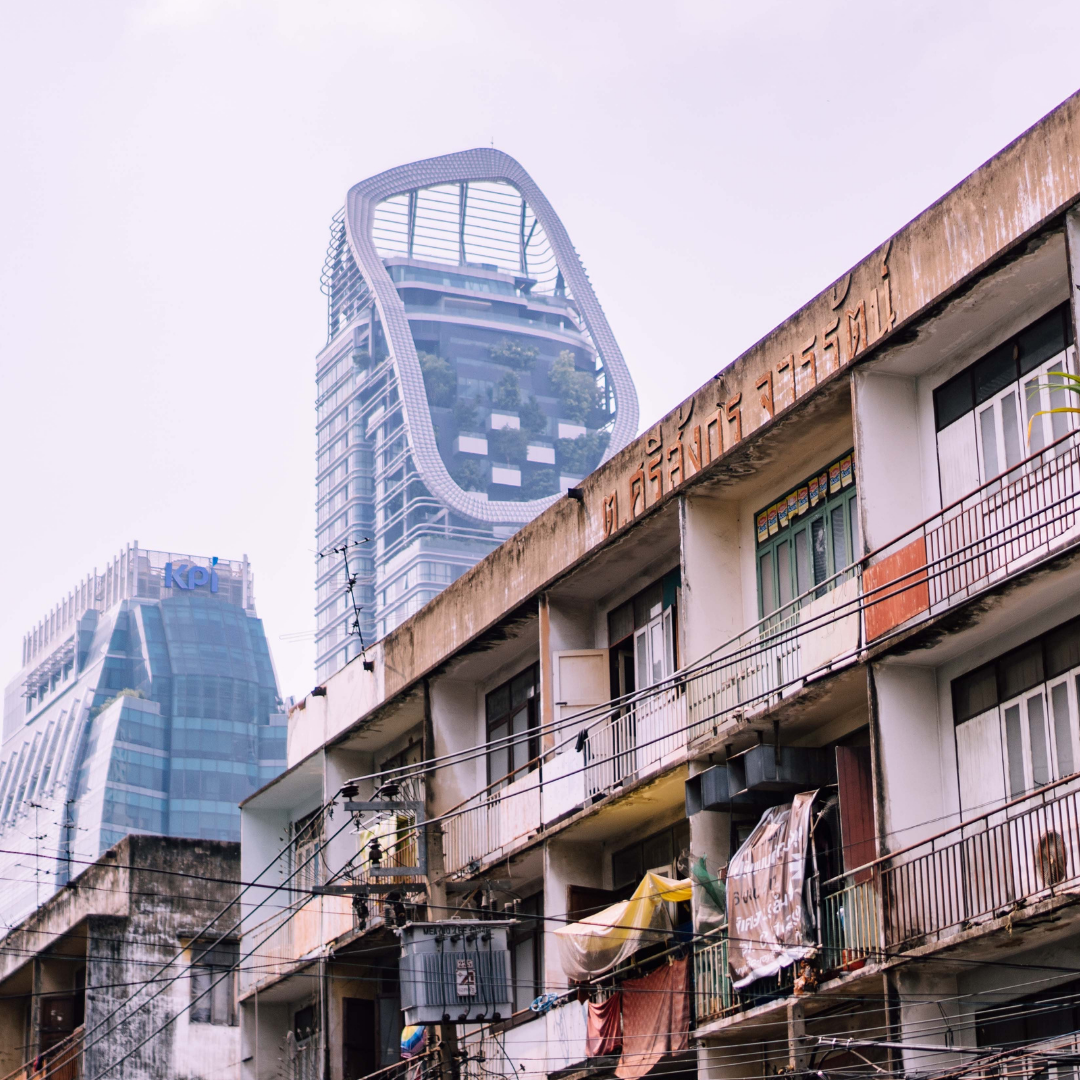Believing for and Participating in Transformation
By Dr. Viv Grigg, Director of the MA in Transformational Urban Leadership
Ever talked to yourself? In the following, an absent-minded professor mumbles to himself eighteen times about 19 principles.
Our audacious aim in the MA in Transformational Urban Leadership is to improve the lives of individuals by transforming the communities and cities in which they serve. Thousands of urban leaders across the globe are laboring to see just that. Daily, they face and address systems of injustice and inequity in hopes of transformation.
"Is SPIRITUAL TRANSFORMATION ESSENTIAL for COMMUNITY TRANSFORMATION?"
Gospel transformation is spiritual, social, economic, and political! Any transformation that we seek (1) begins with spiritual capital, which (2) develops moral capital, and (3) in the formation of faith communities (4) builds social capital. These developments (5) improve economic capacities, as drunkenness, immorality, revenge, and family breakdown become families reconciled, where children grow up with discipline, passion for learning, and desire for holiness. (6) The collective nature of the church is fertile ground for cooperative Self-Help Savings groups to build financial capital and (7) provide seed money to expand the many small businesses of slum dwellers. So, over the course of 15-25 years, we see (8) faith communities moving out of poverty and shifting from the informal to the formal economic sector. With a multi-dimensional program like the MATUL, we foster leaders who create multiple types of capital in urban poor communities. Christian spirituality is economic.
"Are Spirituality, Churches, and Economics enough?"
No, it becomes necessary to engage in (9) community organization and collective action against numerous patterns of urban oppression. (10). Gaining land rights (or land tenure) is essential in breaking this oppression. (Ownership of land is the foundation of genuine grassroots capitalism). In addition to secure land tenure, a few baseline elements are quite critical for an impoverished urban community to escape poverty: (11) children’s education, (12) basic healthcare, and sanitation. If these are not in place, none of the other interventions succeed. Pursuit of these foundational pieces grows from a Biblical understanding and Biblical action, which are part of (13) urban discipleship. Urban spirituality is activist.
CENTRALITY OF SPIRITUAL TRANSFORMATION
"Does a transformed environment indicate full community transformation? Is economic transformation the objective?"
No! A wider objective is (14) the liberation of people’s spirits, in all dimensions. Liberation from the trauma, liberation from oppression, liberation from economic need… (Jesus in Luke 4;18,19 referencing the Jubilee)!
"It’s a deeply spiritual freedom to BE. To create. To have an identity. Why only in Christian spirituality?"
(15) Only in the Cross of Christ is there healing for trauma, abuse, dehumanization, and sickness from malnutrition and poor working conditions (as we work to change those conditions). In the Cross, there is healing for our own sins. (16) But also, for the sins of others against us. There is healing for the physical and emotional damage done TO us. It’s the Cross that brings healing and the Holy Spirit that brings a freedom of being - life! Not only to individuals, but He brings life into the community, then the city. When multiple individuals in a culture or ethnic group experience that life, (16) the very culture itself begins to express the freedom and liberation of the Holy Spirit. The glory of God begins to be known across a city!
TRANSFORMATIONAL LEADERSHIP
"If movements of urban poor churches are the key to city transformation, (17) how are movement leaders formed? How do those leaders enable communities to participate in the community transformation?"
It begins in vision. In one course - Biblical Theology an Urban Context - we converse about (18) the vision of the Kingdom of God as it confronts poverty, slavery, oppression, injustice, and dispossession. We investigate how this vision speaks to building a nation in the Pentateuch, informs a wisdom of leadership in the Wisdom Literature, faces stratification and exploitation in the Prophets, builds movements of hope in Jesus and Paul, and sees the vision of the Holy City in Revelations. Transformational leadership and theology start in engaging points of pain in Enslavement in the Exodus, and in Exile. Students take each of these topics into conversations with folks in their community, engaging the stories of the pain of the urban poor with the stories of hope! Gossip the gospel!

